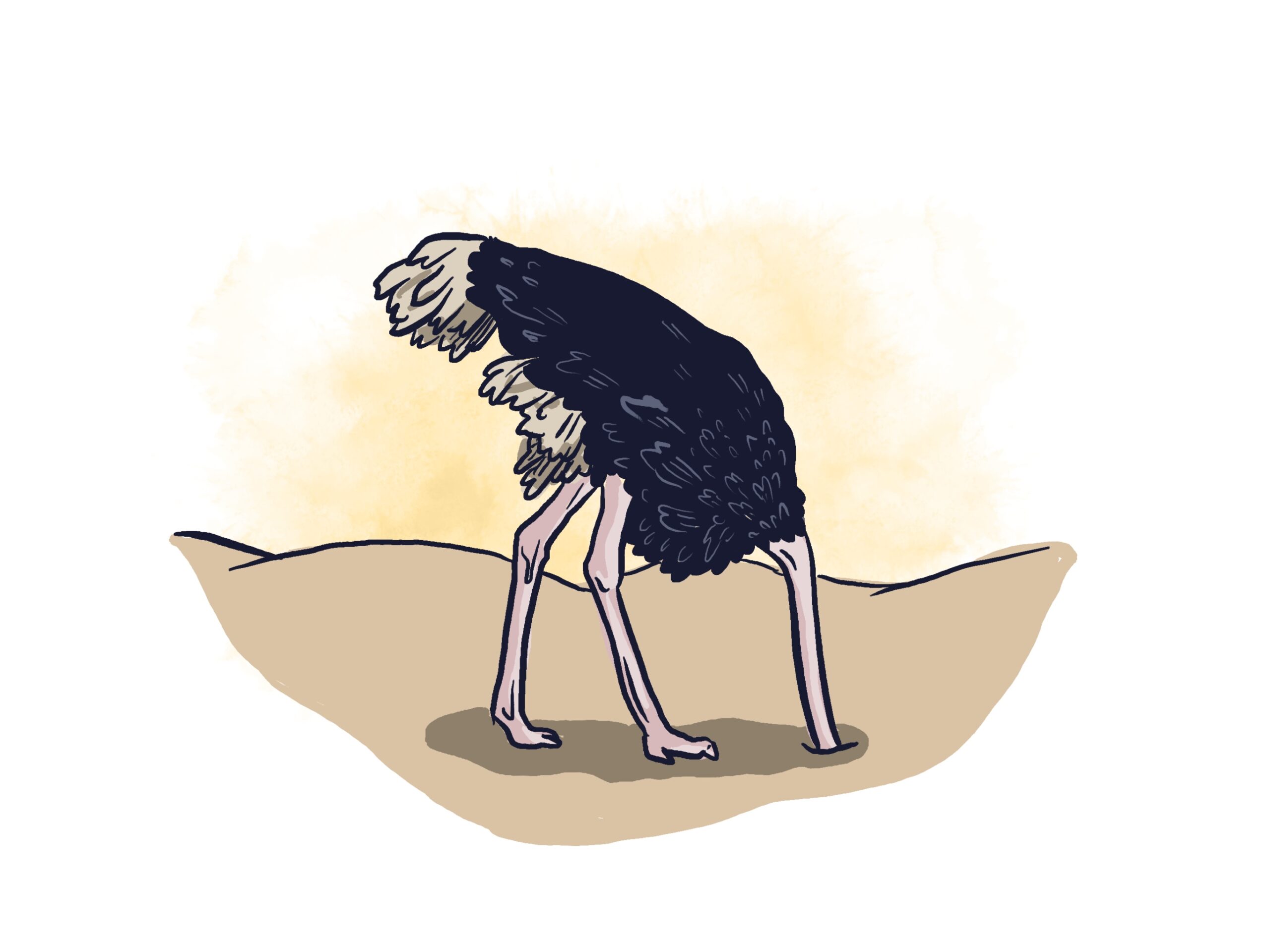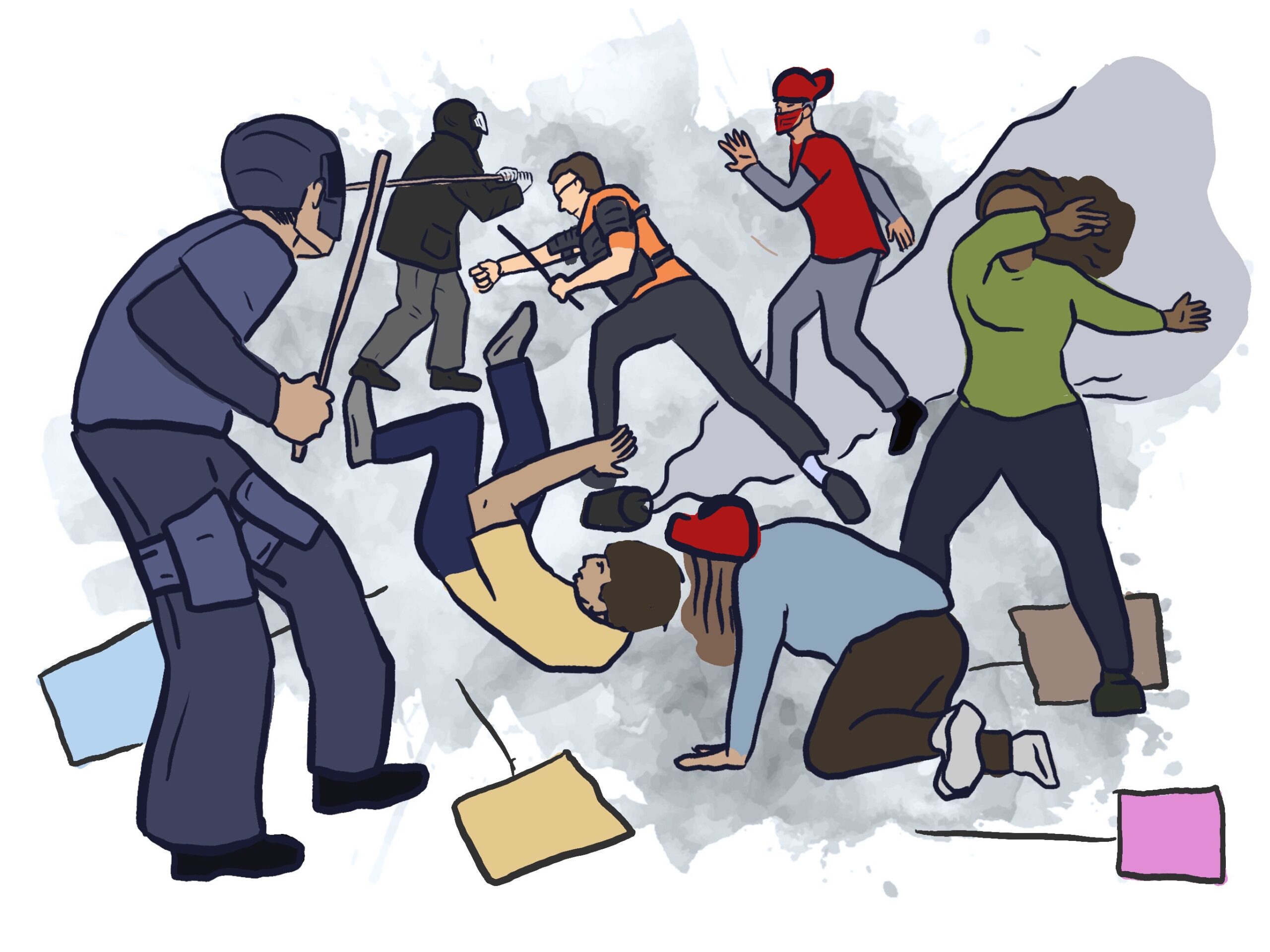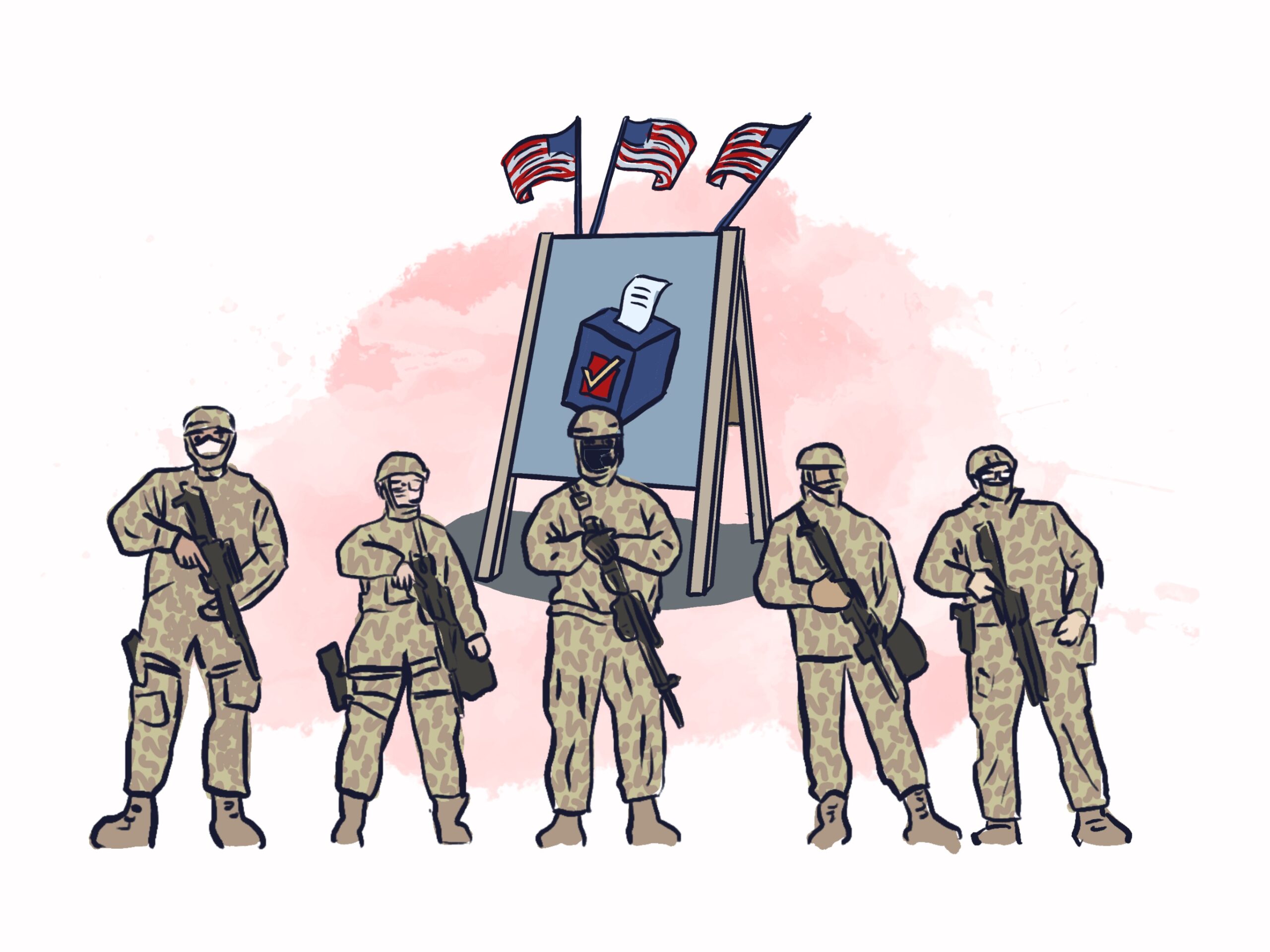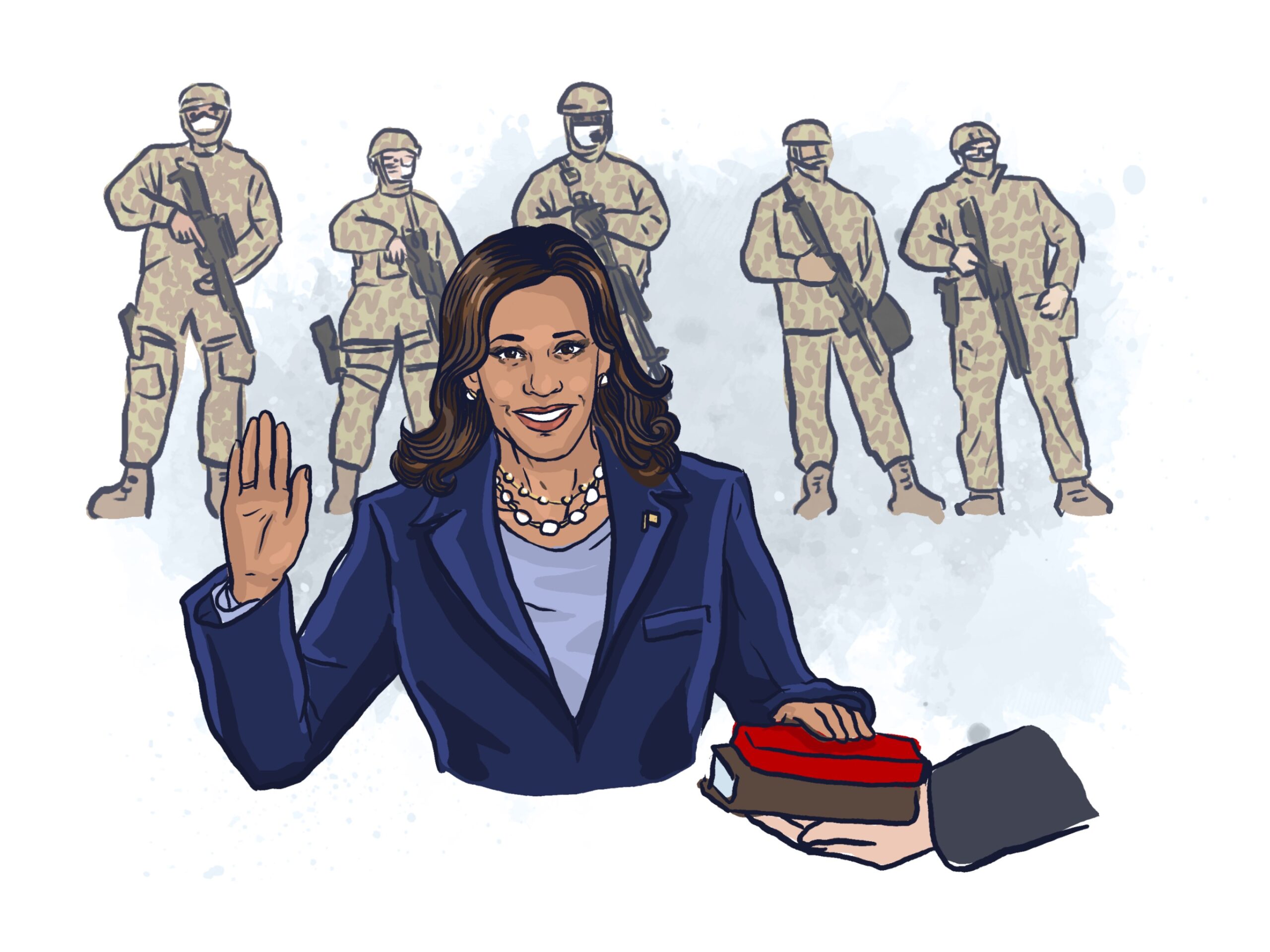You don’t do anything. You decide to just let this play out.


As you expect, the violent clashes in D.C. peak. For a moment, it looks like a civil war could break out. But Donald Trump is not a general, and he doesn’t have a clear internal team around him — just a lot of loyalists who bicker and fight. So when Trump is arrested on charges of treason, the Trump loyalists split into multiple, divided camps. They fight over tactics, strategy, location, and funding — and the military is able to regain control of D.C. Thousands of Trump supporters are arrested.
You begin to realize that without a clear strategy, you simply added to the chaos. The chaos became an opportunity for someone to be seen “cleaning it up” — it ended up being the military, but a smarter Trump could have tried to play that role. The lack of a widespread pro-democracy movement in that moment meant the military generals are now permanently seen as political forces, capable of deciding future elections. Anyone seeking the office of president now has to have secret meetings with military elites to seek their approval.


The transition of power happens on January 20, 2025 with a large military presence. President Harris is inaugurated to fulfill a four-year term. The country weathers this tense period, but barely. You know there’s much work ahead, but you feel proud for your role in helping your country avoid a coup and building an alternative.
THE END.
You survived the transfer of power, but by leaning on the military instead of on people power. Researcher Stephen Zunes has identified four things we need to stop a coup: widespread opposition, nonviolent discipline (to avoid giving the wanna-be autocrat excuses for more violence), alliance building, and refusal to recognize the coup plotters as legitimate. In a coup situation, we need to be in the streets — and fast.
Read Closing Thoughts from the author.
